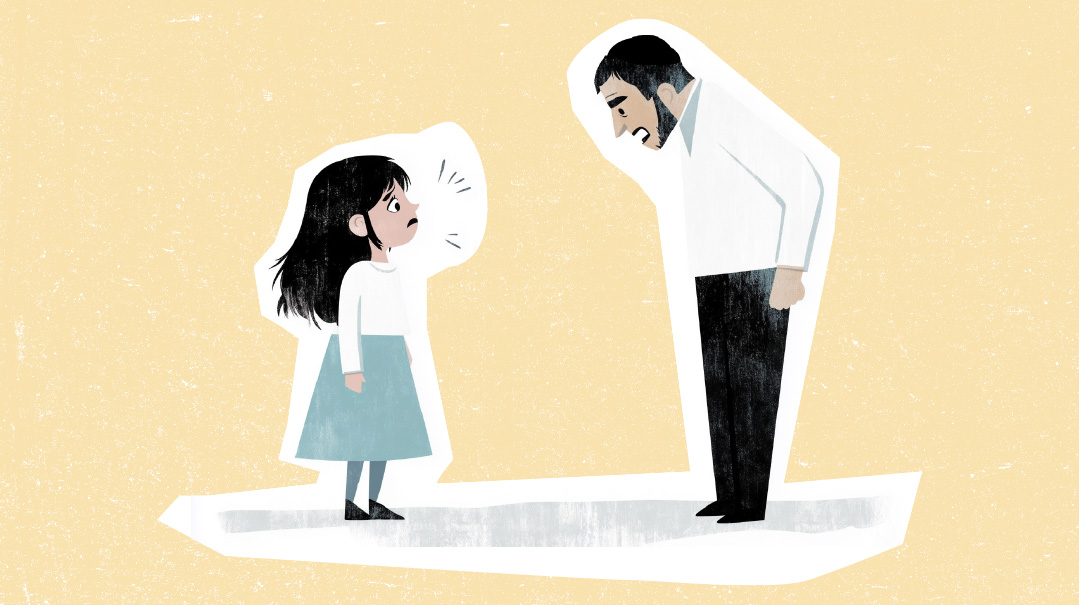“Are Three Kids So Much Harder than Two?”

As the mother of two young kids with a third on the way, I am terrified, to put it bluntly

Q
I keep hearing that having three kids is difficult and a struggle. As the mother of two young kids with a third on the way, I am terrified, to put it bluntly. I’m already feeling overwhelmed, overworked, and exhausted. My dread and worry about how I will manage to balance it all is growing with each passing day. How can I turn these negative thoughts into ones of anticipation?
A
Taking care of small children is an exhausting task, and when you’re in the midst of it — barely keeping your head above water — it’s impossible to imagine doing even more than you’re already doing. Imagining is the act of generating pictures (either pleasant ones or unpleasant ones) in our minds. Also called “thinking,” this activity generates brain chemistry. Every thought or visual image is accompanied by one of two types of chemistry: depleting chemistry or energizing chemistry. If you think a sad, discouraged, or hopeless thought, the chemistry will be draining, sapping you of whatever little strength you have. If you worry (form a picture of something bad happening), you’ll experience the agitating, stress-inducing chemistry of mobilization. Fortunately, you’re asking the right question: How can you change your thoughts so that they will produce good physical and emotional consequences?
Taking Control
The first thing to realize is that your brain is a thinking/imagining machine. Its job is to generate thoughts and images all day, every day. Just as your heart beats and your lungs breathe, your brain thinks, and, as with the other organs, it undertakes this activity without your intervention or permission. But here’s the really good news: If you don’t like the way it’s currently running, you can change it.
The first step is to notice what your brain is currently doing. Simply noticing what it’s doing interrupts the automatic activity of the brain. Did you ever learn a breathing technique that involved inhaling and exhaling according to a specific way of counting? Many people find that when they first try to interfere with their breath, they become unable to breathe. We want to actually use that phenomenon intentionally when it comes to reprogramming our thinking habits. If we notice our depressing and anxiety-provoking thoughts when they happen, it puts the first dent in the automatically generated neural program.
Disconnecting the Tracks
Picture the, “How am I going to manage?” script as a bunch of train tracks connected to each other. The first track (Track A) might be the question itself — “How am I going to manage?” That’s connected to Track B — “I’m going to fall apart. I can’t do it.” That’s connected to Track C — “I can’t even get through my day now,” which is connected to Track D — “I’ll always be a horrible mother.” This leads to Track E — “I always make a mess of my life,” and so on to tracks F, G, H, I J, K, and all the rest. If you stop to notice that you’re on this train track right when you’re still at Track B, then your noticing interrupts the circuit and causes all the tracks afterward (C, D, E, F, etc.) to disconnect from Track B and collapse. Now your train track — that familiar road of worry and rumination you’ve been traveling for some time — is broken.
Noticing the Thought
To properly notice a thought, stop what you’re doing whenever you begin thinking about what’s going to happen after the baby is born, or whenever you start to feel that awful sense of impending doom. In that second, notice the energy and mood that accompanies the thought (“and I’m feeling overwhelmed from thinking it...”), or notice the thought that is accompanying the mood.
Noticing is a new activity, one very different from continuing to think the thought, imagining the scenario, playing with it, expanding it, and emotionally wallowing in it as you usually do. Noticing not only interrupts the neural activity and neural program, but it also begins a reprogramming process. Noticing distances you from the negative thought and its toxic chemistry, and, in fact, noticing has its own chemistry — one that is soothing and encourages curiosity, alertness, and calm. It’s relaxing to just notice something.
Finally, now that you’ve noticed the road to destruction, you can just step off of it. Immediately turn your thoughts to gratitude for anything. You might feel gratitude for being able to get off that train or gratitude for being a mother or gratitude for the cup of coffee you can make for yourself right now. Any brief moment of gratitude for anything at all immediately floods your system with chemistry that begins to heal your brain, your heart, and your soul. And begins to build new train tracks that will take you to a much better place!
(Originally featured in Family First, Issue 824)
Oops! We could not locate your form.





